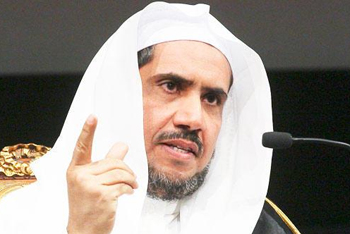 Jeddah, Jun 11: Justice Minister Mohammed Al-Eissa has denounced international rights groups for attacking the Kingdom’s judiciary, saying laws in this country are based on divine precepts contained in the Holy Qur'an.
Jeddah, Jun 11: Justice Minister Mohammed Al-Eissa has denounced international rights groups for attacking the Kingdom’s judiciary, saying laws in this country are based on divine precepts contained in the Holy Qur'an.
“Any attack on the judiciary will be considered an attack on the Kingdom’s sovereignty,” he said recently.
Speaking to American lawyers, legal consultants and academics in Washington, Al-Eissa said many people have misunderstood Islamic laws because they follow biased information and ignore cultural differences. “This is the reason for rights organizations making big mistakes in their reports,” he said.
The minister tried to counter misconceptions about various Shariah punishments such as beheading, cutting off hands and lashing. “These punishments are based on divine religious texts and we cannot change them,” he said.
Al-Eissa emphasized the progress of the Kingdom’s criminal justice system. “At Saudi courts criminal proceedings are undertaken publicly to ensure transparency and fair justice.” He said the application of Islamic laws has reduced crime in the Kingdom.
“Islam is a religion of wisdom that calls for dialogue with other religious faiths and peaceful coexistence with other communities,” the minister said. “If it was not a good religion, it would not have lasted for more than 1,400 years and won millions of followers around the world.”
Referring to capital punishment, he said many other countries have this form of penalty enshrined in their legislation. “The punishment of cutting off hands has been instructed by religions other than Islam." He said the punishment of lashing is only meted out to those convicted of serious crimes related to honor. The Shariah does not approve of cutting off the hands of suspected thieves, he said.
“Islam sympathizes with the victim, not the criminal,” the minister said.






Comments
Add new comment